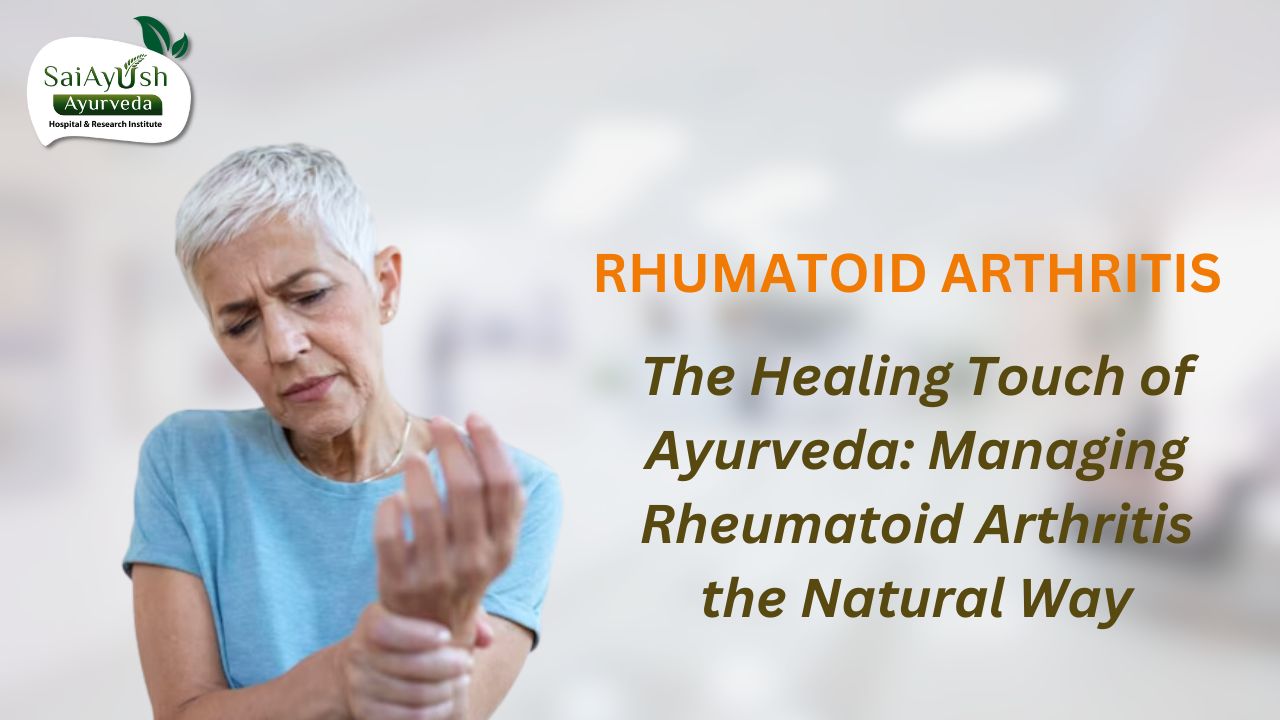Understanding Rheumatoid Arthritis and its Impact on Health
Millions of individuals around the world suffer from rheumatoid arthritis (RA), a chronic inflammatory condition that causes pain, stiffness, and swelling in the joints. The traditional Indian medical system of Ayurveda offers a holistic method of managing and treating RA, while contemporary treatment only addresses symptoms. Ayurveda seeks to restore balance and naturally treat the symptoms of rheumatoid arthritis by treating the condition’s underlying causes and balancing the body’s energy.
In Rheumatoid Arthritis, the immune system of the body attacks the joints inadvertently, causing inflammation, discomfort, and damage. The body’s other organs and systems may get impacted by this persistent inflammation over time. The imbalance of the Vata and Pitta doshas (bioenergetic forces) and the buildup of ama (toxic waste) in the joints are how RA is viewed in Ayurveda.
What are the various causes and symptoms of rheumatoid arthritis?
Causes: Although the precise etiology of RA is still unknown, it is thought to be the result of a mix of hereditary and environmental factors. Individuals may be predisposed to developing the illness due to certain genes and immune system disorders. Infections or hormonal changes may act as environmental triggers as well.
Symptoms: Although RA frequently manifests as joint-related symptoms, it can also have an impact on other organs. Joint pain, edoema, and stiffness are typical symptoms, particularly in the tiny joints of the hands and feet. A defining trait is morning stiffness that lasts for more than an hour. There may also be symptoms including general malaise, fatigue, fever, and appetite loss. As a result of RA, the matching joint on the other side of the body may also be affected if one joint is.
The Ayurvedic Treatment of Rheumatoid Arthritis and How it Can Help
According to Ayurveda, the RA is mentioned as Amavata, which is caused by an imbalance between the Vata, Pitta, and Kapha doshas, especially connected to an aggravated Vata dosha, and affects the lining of the joints, causing Shotha (swelling) and Shula (pain). RA, according to Ayurvedic principles causes Inflammation, discomfort, and stiffness brought on by the ama (toxins) that are caused by the imbalance of Vata.
The primary goals of ayurvedic rheumatoid arthritis treatment are dosha balance, toxin removal, and general health and well-being restoration. Ayurvedic treatment for RA includes the following major components:
An all-encompassing strategy is used in the Ayurvedic prescription for treating Rheumatoid Arthritis (RA), with the goals of lowering inflammation, controlling pain, and enhancing joint health in general. The following components are frequently present in the treatment:
Panchakarma: To remove toxins and rebalance the body, Ayurvedic detoxification techniques like Virechana (purgation) and Basti (medicated enema) are used.
Abhyanga (herbal oil massage), Pizhichil (oil bath), and Swedana (herbal steam therapy) are examples of Ayurvedic therapies.
Herbal remedies: A number of herbal concoctions, including Triphala, Guggul, Ashwagandha, and Turmeric, are recommended to lessen inflammation, support joints, and boost immunity.
Dietary and Lifestyle Changes to Help Manage Rheumatoid Arthritis According to Ayurveda
Ayurveda places a strong emphasis on the value of a healthy diet and way of life for managing RA. It advises consuming warm, easily digestible foods, avoiding cold and heavy foods, and including anti-inflammatory spices like turmeric, ginger, and garlic. Stress reduction and improved joint mobility can both be achieved by regular exercise, yoga, and meditation
CONCLUSION
Rheumatoid Arthritis (Amavata) can have a considerable negative influence on a person’s quality of life, but Ayurveda provides a comprehensive method of treatment. Ayurvedic treatments, including herbal preparations, Panchakarma, dietary changes, and lifestyle adjustments, can aid in symptom relief and enhance general well-being by addressing the underlying causes of RA and concentrating on balancing the doshas. It is crucial to get advice from a licensed Ayurvedic doctor who can customize the treatment regimen to suit each patient’s needs. Keep in mind that for a thorough and integrated approach to controlling RA, working in cooperation with your primary healthcare physician is essential, even though Ayurveda offers useful insights.
Discover the healing power of Ayurveda with our latest article at Sai Ayush Ayurveda Hospitals! Dive into the age-old wisdom that can rejuvenate your body and mind. Click here to read more:



0 Comments